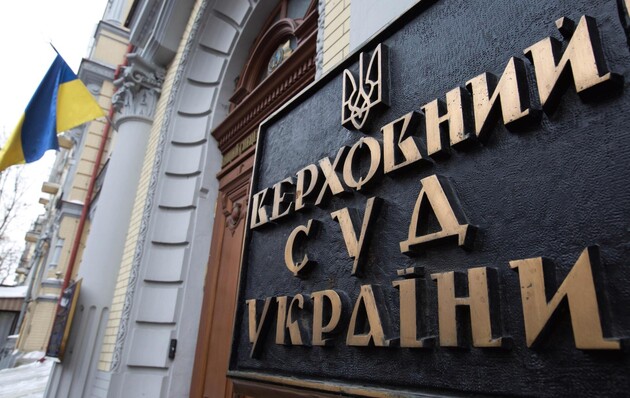How do the courts affect the personnel purge in the government?

When the new government launched large-scale reforms in 2014, everyone had high hopes: we would conduct a lustration, restart the law enforcement system, overcome corruption – and begin a full-fledged path to the EU.
But just as the best recipe can be spoiled by the quality of products, so the best reform can be killed by the quality of personnel, especially if they hold fast to their positions.
Since 2014, we have been witnessing high-profile cases regarding the mass reinstatement of officials who have passed the lustration, the return to the system of law enforcement bodies of dismissed policemen and prosecutors who did not pass certification, as well as the cancellation of decisions on the dismissal of "Maidan judges". It would seem that the authorities tried to clean the state bodies of unscrupulous and unprofessional personnel, but faced resistance from the judiciary. So can we say that the courts purposefully influenced the reform process? And why did it happen? The Laboratory of Legislative Initiatives investigated this issue. This article describes our findings.
How "affected" personnel successfully challenged their dismissal in the courts
Experience shows that a wave of court appeals as a reaction to certain changes occurs when these changes significantly affect the scope of citizens' rights. Turning to the courts, the "victims" try to restore their previous position, referring to the illegality of the innovations. Do they succeed in the future? Everything depends on the level of organization and implementation of changes prepared by the authorities.
Lustration. The dismissal from management bodies of persons involved in the usurpation of power by ex-president Viktor Yanukovych began in 2014. So far, the lustration check process has covered almost 500,000 officials.
However, a large number of former political figures consider the procedure of personnel purges in power structures to be illegal. In addition, they also consider decisions made by authorized bodies to be illegal. This provokes a large number of appeals to the court by officials who have passed the lustration.
The situation worsened due to the decision of the European Court of Human Rights (ECHR) in the case "Polyakh and others v Ukraine", by which the lustration procedure in Ukraine was recognized as a violation of human rights. It is significant that after the entry into force of this decision, national courts in more than 90% of cases annul the dismissal orders. Ultimately, according to the Ministry of Justice of Ukraine, from October 2014 to June 2023, information on 466 officials was removed from the Register of persons who have passed the lustration by a court decision – they were reinstated. Therefore, the process of personnel purges in law enforcement agencies initiated in Ukraine did not withstand a court appeal. And this case was just one of the first in a whole series of similar cases.
Police reform. We observe a similar situation in the case of the renewal of police officers dismissed based on the results of certification in 2015-2016. This procedure was one of the significant events in the process of reforming the law enforcement system, as it aimed to select honest police officers who expressed a desire to continue serving in the newly created National Police of Ukraine.
The proposed design of the changes initially looked quite promising. However, hopes for the undisputed success of the restart of the National Police of Ukraine did not come true - after the announcement of the unsatisfactory results of the certification, about 3,300 police officers did not agree with them and filed lawsuits in administrative courts. It was in this that the active role of judicial authorities in the process of control over the legality of personnel purges was manifested.
As a result, on the basis of the decisions of the courts, a significant percentage of the police-plaintiffs were reinstated in their positions, because during the consideration of the cases, the courts found weak points in the certification procedure. In particular, according to the National Police of Ukraine, as of July 1, 2023, there are 3,931 police officers who managed to return to their posts based on court decisions. Such a position of the courts once again called into question the success of the implemented changes.
Personnel purges of the prosecutor's office. Unfortunately, the negative experience of designing and implementing certification of police officers was not properly analyzed at the highest state level. As a result, the previous shortcomings were recalled four years later, when it was necessary to conduct the certification of prosecutors of the General Prosecutor's Office of Ukraine.
According to the plan of the developers, only those prosecutors who were able to successfully pass the certification should have been transferred to the newly created Office of the Prosecutor General, which began work in January 2020. However, this time too, it was not without a wave of legal appeals. This is due to the fact that out of 1,083 prosecutors of the General Prosecutor's Office who submitted statements of intent to pass the certification, only 643 (59%) successfully passed it. Those prosecutors who failed to get on this list decided to challenge the certification in court. So in general, according to the Laboratory of Legislative Initiatives, based on its own analysis of information from the Register of Court Decisions of Ukraine, more than 400 lawsuits were submitted to administrative courts.
This time, although the courts did not recognize the complete failure of the attestation, they did reveal significant shortcomings during its development and implementation. Therefore, as a result of the judicial review, about 140 decisions were made in favor of the ex-prosecutors of the General Prosecutor's Office.
Purges of the judicial system by "Maidan judges". After the events of the Revolution of Dignity in 2013-2014, the question of bringing to justice the judges who took an active part in the suppression of public protests against Viktor Yanukovych's regime became particularly acute. For this reason, a decision was made in 2014-2015 to conduct special inspections of judges in order to "restore legality and justice in society."
According to official information from the Supreme Council of Justice, as a result of this procedure, 41 conclusions were made about the presence of signs of oath violation in the actions of 46 judges. On the basis of these conclusions, the Supreme Council of Justice adopted 25 decisions on submitting a petition to the president and parliament for the dismissal of 29 "Maidan judges".
However, according to the results of the trial, some judges still managed to get these decisions overturned. One of the key reasons is the inadequate quality of the law that introduced the special inspection procedure. So, as of July 2023, in relation to six judges, the courts made final decisions to cancel their removal from office. This is more than 20% of the total number of judges who appear in dismissal applications.
Why is this happening and what does it mean?
The decisions of the courts have a significant impact on the final result of the success of the personnel purges in state bodies. Mass cancellation of the results of changes at the level of individual appeals is an example of the indirect but very tangible influence that Ukrainian courts have on public policy.
However, this is not because the idea of personnel purges in itself is wrong, it indicates, rather, that there are certain flaws in its design or implementation process. In general, the decisions of the courts are evidence that the Ukrainian practice of implementing such changes is traditionally accompanied by typical mistakes that cannot be finally overcome for a long time. So what's the problem?
First, quite often large-scale changes are based on weakly developed legislation. In connection with this, there are various inconsistencies, contradictions in relevant normative legal acts, national practice does not meet international standards, etc.
Secondly, even well-designed regulations do not guarantee 100% success of the reform. This happens because the provisions of the legislation are often violated during the direct implementation of the changes. For example, the authorities act contrary to their authority, improperly substantiate the decisions made, do not observe the deadlines for carrying out certain procedures.
Therefore, in the case of the presence of at least one of these aspects, the courts come into play, and based on the results of the cases, they recognize the reforms or some of their procedures as illegal.
So, in the end, the influence of the courts is one of the indicators that the vector of social changes is at least thought out and (in)correct. Unfortunately, the domestic experience of organizing previous attempts to restart state institutions and personnel renewal cannot always be called successful. The results of the court appeal reveal all the mistakes that were made by the developers of the innovations. However, there is also a positive point in this – judicial control acts as a safeguard and warns against repeating similar mistakes in the future. And this experience should be taken into account now, when we are planning the reforms necessary for Ukraine's full membership in the EU.
Read this article in Ukrainian and russian.
Please select it with the mouse and press Ctrl+Enter or Submit a bug

















 Login with Google
Login with Google